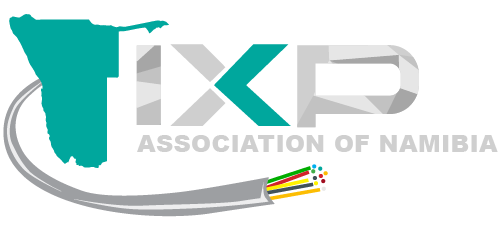Government Offices, Robert Mugabe Avenue, Privatebag 13344, Windhoek, Namibia
// FAQ
Frequent Questions
What is IXP Namibia?
IXP Namibia is a non-profit organization (registered under Section 21 of the Companies Act of Namibia) dedicated to the establishment and operation of an Internet exchange point and other related Internet infrastructure for the benefit of Namibian Internet users.
Where is IXP Namibia based?
The IXP is based in Windhoek. It is hosted at the Telecom Namibia Data Centre but it should be noted that it does not belong to Telecom Namibia.
What is the benefits of an IXP?
The NIXP's role is to establish a domestic Internet eco-system or local internet economy.
Local Internet Traffic remains Local
- Reduced Latency Between ISPs
- Reduced Costs – Interconnection
- Reduced Costs – End users
- Increased Resilience – Reduced impact of international Link Failures for Local Content and Services
- Attract business, customers and content SPs
- Benefits Local Content Creation and Hosting Initiatives
What exactly is an IXP?
This is the physical infrastructure through which Internet service providers/Institutions(private and public)/ content providers peer together with the sole purpose of exchanging Internet traffic among their networks.
By keeping local traffic local and avoiding international links, local operators and users can enjoy significant cost savings, provide substantial local bandwidth, and improve local Internet performance.
The Internet is a network of interconnected networks; Without IXPs, there would be no Internet, as we have come to know it.
What is in it for operators & consumers?
The IXP has resulted in savings or affordability, as the operators save money because they don't have to pay for transmission on content that stays local and is exchanged at the IXP.
Every byte of local bandwidth saved equates to a byte of international bandwidth capacity saved.
The operators save money on interconnection costs because, rather than paying for multiple connections to other ISPs within the country, which is also an expensive exercise, the operators only need to pay for one connection to the IXP and peer with all other operators present at the IXP.
Consumers benefit from faster data retrieval of local content and improved service quality.
What is the challenges of running an IXP?
There are a number of financial, operational, and administrative issues to address.
Building a successful IXP is more than just a technical engineering task; time and effort must be invested in cultivating trust, common understanding, and mutual agreements in the local community.
Because the IXP is a non-profit organization that relies on sponsorships and membership fees for funding, the number one challenge is money.
What is a peering member?
Peering members are the operators / institutions that provide internet access to the general public.
How can I become a peering member?
Operators/institutions require to meet certain technical requirements to be eligible as peering partners.
- Each participating network must have a public Autonomous System Number (ASN)
- IP Block (Ipv4 / IPv6) and
- license to operate in Namibia, issued by the regulator (CRAN)
There is a once-off set-up fee and annual peering fees
Feel free to contact us to receive a signup form
What is an associate member?
Members who have come together for a common goal, which is local connectivity, and have decided to collaborate to contribute to a better, more resilient local Internet infrastructure.
This is open to all entities with an interest in ICT development.
Associate members can be sponsors or volunteers on the different committees
How can I become an associate member?
You can contact us via the Contact us page, or enquire through the Become a Member page to receive a signup form.
// We Are Looking For Members To Join Our Team
